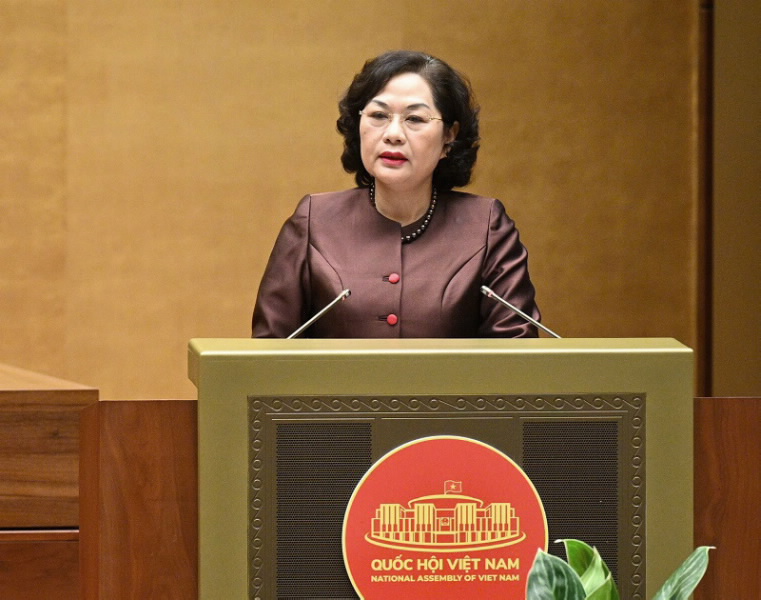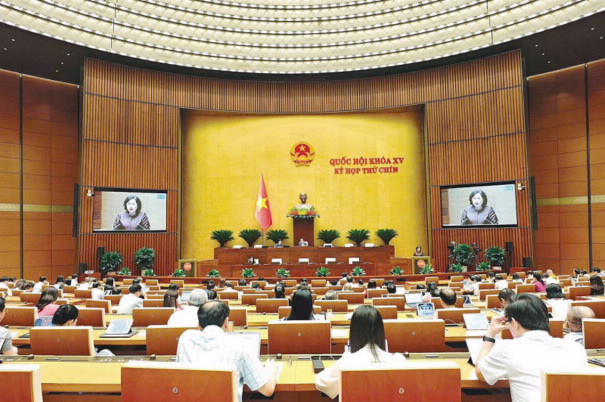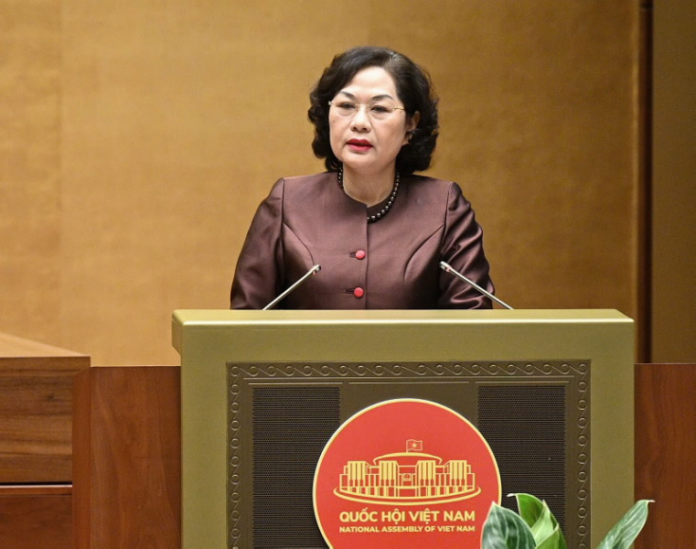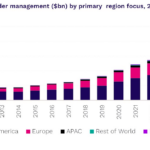During the morning of May 20, the Governor of the State Bank of Vietnam, Nguyen Thi Hong, on behalf of the Prime Minister, presented the draft Law on Amending and Supplementing a Number of Articles of the Law on Credit Institutions to the National Assembly.
Notable New Content of the Draft Law
According to Governor Hong, the draft law has a strategic significance. It legalizes effective regulations from Resolution 42/2017/QH14 to address bad debts. Additionally, it decentralizes the authority for special lending, creating a strong impetus for double-digit economic growth while ensuring the safety of the credit system during the economy’s acceleration phase.
As Vietnam’s economy strives to achieve an 8% growth target in 2025, Governor Nguyen Thi Hong emphasized the urgency of refining the legal framework for the banking system. She pointed out that bad debts are currently high and on the rise, putting significant pressure on credit institutions. Meanwhile, the need for quick liquidity support for commercial banks demands timely solutions.
Recognizing this situation, the government has submitted to the National Assembly the draft Law on Amending and Supplementing a Number of Articles of the Law on Credit Institutions. The focus is on legalizing regulations regarding bad debt handling and decentralizing authority for special lending. As stated in Report No. 442/TTr-CP, this aspect was clearly presented, highlighting the project’s role in capital rotation, enhancing credit accessibility, and ensuring credit system security.
The draft law is built on a solid political and legal foundation, reflecting the Party and State’s major policies. It introduces several notable new contents, including amendments and supplements to the Law on Credit Institutions, as outlined below.

Governor of the State Bank of Vietnam, Nguyen Thi Hong
Governor Hong mentioned that Clause 1 of Article 193 has been modified to transfer the authority for deciding on special lending from the Prime Minister to the State Bank of Vietnam. This enables the SBV to approve special loans with or without collateral at a 0% interest rate, expediting the process and ensuring the safety of the credit system.
Article 198a has been added, stipulating the right of credit institutions and organizations that purchase and handle debts to seize secured assets when dealing with bad debts. This can only be done if the security contract permits seizure and complies with transparent procedures without violating laws or social ethics. According to the Governor, credit institutions and debt-handling organizations must establish internal regulations on seizing secured assets to protect the interests of all involved parties.
Article 198b specifies that the assets of a person subject to enforcement are only subject to seizure if they serve as collateral for a non-performing loan under specific conditions. These include cases where the security contract was signed after the judgment took effect or with the consent of the credit institution, thus safeguarding the legitimate rights of the credit institution.
Article 198c states that investigative agencies must return exhibits in criminal cases or objects of administrative violations that serve as collateral for non-performing loans if it does not affect the handling of the case. The handling of the secured assets after their return shall comply with legal regulations.
The Governor also mentioned that the draft law proposes to revoke some clauses and phrases to align with the change in authority for special lending. Additionally, transitional provisions are included to handle special loans already decided upon and cases where secured assets are currently under seizure.

Governor Nguyen Thi Hong stated that the draft law aligns with international treaties and Vietnam’s commitments, meeting integration and development trends (Photo: Nghia Duc)
To ensure the law’s enforcement, Governor Hong asserted that agencies and organizations would utilize existing financial and human resources, allocating funds according to legal regulations.
The National Assembly’s Standing Committee, in its Notification No. 1346/TB-VPQH dated April 28, 2025, concluded that the draft law’s documents meet the requirements and conditions for submission to the National Assembly for consideration at the 9th session of the 15th National Assembly, following a one-session process and a streamlined drafting procedure. The Standing Committee also affirmed that the draft law is a significant step toward perfecting the legal framework, supporting bad debt handling, and ensuring credit system safety. It meets practical demands and demonstrates the government’s commitment to promoting sustainable economic growth and providing a strong impetus for double-digit growth in the future.
Alignment with International Treaties and Vietnam’s Commitments
Governor Hong also noted that the credit system’s bad debts are currently high and on the rise, posing significant challenges to the banking sector. As 2025 is a pivotal year for achieving economic growth and setting the pace for the following years, robust solutions are necessary to expedite capital rotation and enhance credit accessibility at reasonable costs. Therefore, providing liquidity support to commercial banks through special lending requires swift decision-making to ensure the safety and security of the credit system.
The primary objective of the draft law is to establish a harmonious legal framework for handling bad debts, ensuring practicality and overcoming challenges faced by credit institutions, foreign bank branches, and organizations that purchase and handle debts in seizing and processing secured assets. According to Governor Hong, this will facilitate capital rotation and enhance credit accessibility for individuals and businesses. Moreover, decentralizing the authority for deciding on special lending from the Prime Minister to the State Bank of Vietnam strengthens the SBV’s role and responsibility, reduces intermediaries, shortens processing time, and ensures the safety of the credit system.
Governor Hong affirmed that the draft law aligns with international treaties and Vietnam’s commitments, meeting integration and development trends. The law-making process has been transparent and compliant with legal regulations.
The Ultimate Oceanfront Metropolis: SmartRealtors Proudly Presents Blanca City
On May 20, 2025, in Ho Chi Minh City, Vietnam, SmartRealtors & Partners, a leading real estate company, was officially appointed as the exclusive distributor for the prestigious Blanca City seaside metropolis project. This announcement was made at the project’s kickoff event, hosted at the prestigious GEM Center in District 1. Sun Property, a prominent member of the renowned Sun Group, is the visionary developer behind this transformative urban project.
“Vietnamese Businesses Seek Alternative Funding Through Private Lending”
According to statistics from Beacon Fund, the number of businesses seeking capital from Beacon nearly tripled in the latter half of 2024 compared to the same period the previous year.
“Thai-owned Big C Vietnam’s Revenue Skyrockets to $426 Million in Q1, Contributing a Fifth to Central Group’s Earnings”
Central Retail, a leading retail company, has announced ambitious plans for Vietnam. Over the next five years, the company aims to invest a total of $2 billion in the country, including expanding its network of GO! shopping centers and GO!, Tops Market, and mini go! supermarket chains. This significant investment demonstrates Central Retail’s commitment to Vietnam and its vision for the future.
“Unveiling the Unexpected: Chairman of the Song Thao Group on the 30% Land Rent Reduction Policy for SMEs”
A 30% land rental fee reduction policy for the first five years is expected to be a financial boost for small and medium-sized enterprises (SMEs), helping them overcome the hurdle of fixed costs.





















